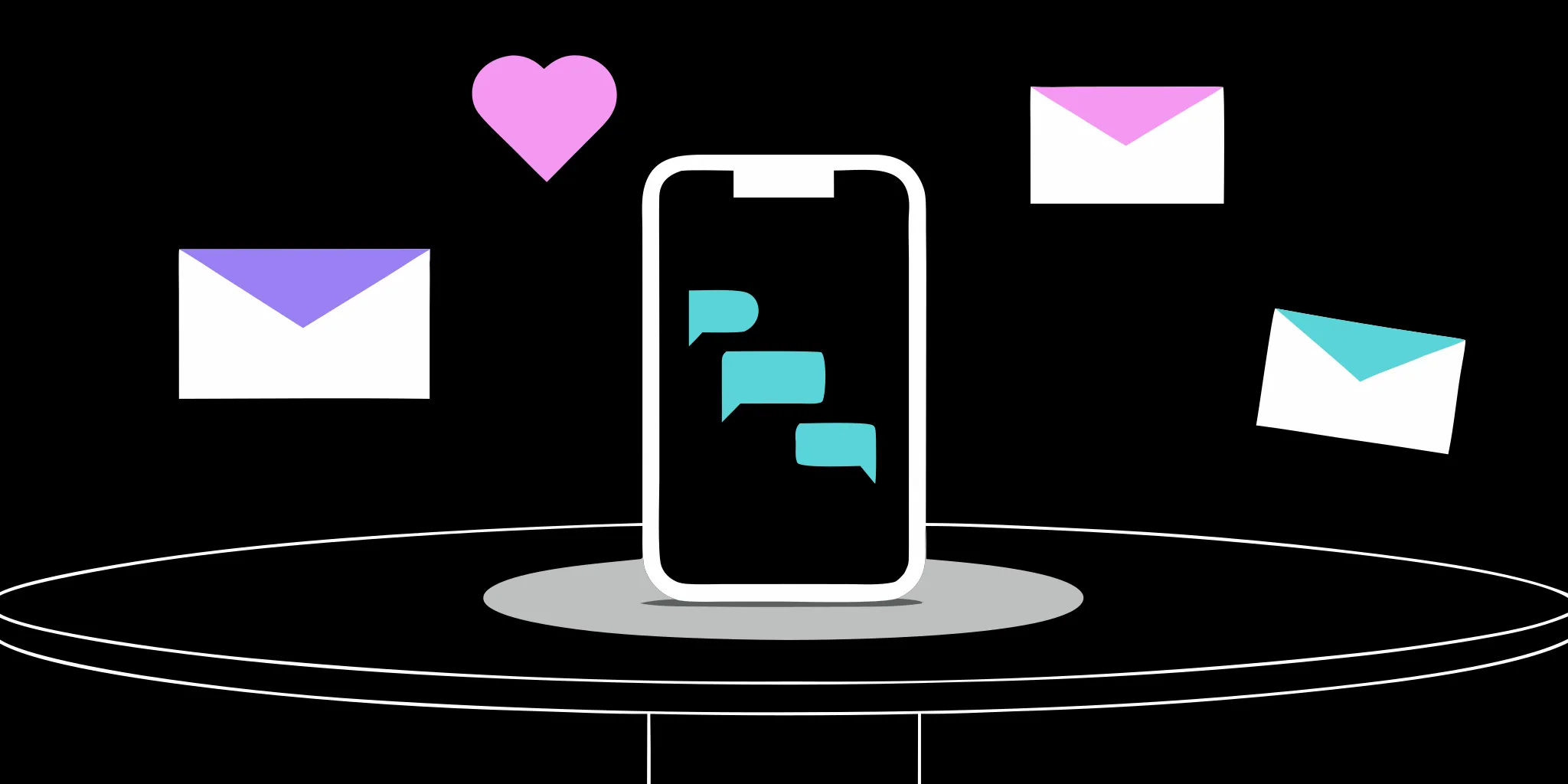
As a nonprofit professional, you’re likely very familiar with the idea of individuals giving to charities to receive a tax deduction in return. This is a common driver for many supporters and is one of many reasons why organizations see a barrage of donations during the final months of the year.
When it comes to Facebook fundraising, many behind-the-scenes aspects can seem confusing for nonprofit organizations, such as how these gifts are processed, how fundraisers are discovered, and how nonprofits can build connections with their fundraisers and donors. In a similar vein, the specifications surrounding tax deductions can throw nonprofits for a loop.
At GoodUnited, we’ve researched the Facebook fundraising process to help nonprofits like yours raise more through the popular social platform. During that research, we’ve gotten to the bottom of how tax deductions and donation receipts are handled. We’re passing on this knowledge to help you better understand how to make the most of this important (and popular) revenue stream.
Let’s explore Facebook fundraising and tax receipts through the following points:
- Are Facebook donations tax-deductible?
- Will changes in tax law impact Facebook fundraising for your nonprofit?
- Understanding Why Donors Give
Ready to learn the ins and outs of Facebook donation and tax receipts? Let’s get started.

Are Facebook donations tax-deductible?
In short, Facebook donations, like nonprofit donations processed through any other channel, are tax-deductible. These donations are considered “cash donations,” and their deductibility is considered in a similar manner to that of a donor writing a year-end check to your nonprofit.
With that in mind, to claim a deduction for Facebook gifts, donors need a bank record or other written communication confirming the gift was made. This confirmation needs to include:
- The name of your nonprofit organization
- The amount of the cash contribution
- A statement that no goods or services were provided by your organization in return for the gift (if goods/services were provided, such as during an online auction, that is processed differently)
The specific rules governing charitable deductions are subject to change. If you’re curious, we recommend reviewing the IRS parameters here.
Do Facebook fundraiser donors receive tax receipts?
As we discussed earlier, for a donor to receive a tax deduction for a Facebook donation, they’ll need written confirmation of the gift. This is most often done through a tax receipt, which is readily available for Facebook donors.
Facebook automatically generates tax receipts for donations and sends them directly to the donors’ email addresses. This is the email address on file with their Facebook account, so it’s important that this information is up-to-date.
This receipt includes a few key pieces of information:

- The organization’s name
- The organization’s logo
- The organization’s mission statement
- The organization’s EIN
- A confirmation that the donation was made without receiving goods or services in return
This information is sent whether your nonprofit is signed up for payment processing through Meta Pay or Network for Good. Furthermore, users can also find this information in their own Meta Pay history if the email is lost. This should be all that Facebook donors need to receive a charitable deduction.
Why is it important for your nonprofit to know this information? Once your nonprofit fully dives into Facebook fundraising and begins hosting dedicated Facebook Challenges, you might receive a few questions from supporters. To address those questions:
- Create a Facebook fundraising user guide and share it with both fundraisers and donors. This informative guide should answer all frequently asked questions, from how to start a fundraiser or join a Facebook Challenge to information about any Facebook fundraiser fees.
- Educate your fundraising staff on the basics of Facebook fundraising. This allows them to answer questions on the fly rather than being caught off guard, which is important for instilling trust in your supporters.
- Use conversational messaging to reach out with tips on Facebook Messenger. To supporters who have opted into receiving ongoing communications from your nonprofit, you can provide helpful resources and tips related to Facebook giving and tax receipts.
Now that we’ve covered the basics of Facebook fundraising and tax deductions, let’s dive a little deeper to see how this could impact your nonprofit’s fundraising efforts.
Will changes in tax law impact Facebook fundraising for your nonprofit?
As a nonprofit professional, you’re probably already aware that the parameters around tax-deductible charitable donations can change from year to year.
For example, in 2017, we saw the Tax Cuts and Jobs Act reduce the marginal tax benefit of giving to charity by about 25% and raise the after-tax cost of donations by about 7%. It also capped state and local tax deductions at $10,000 and increased the standard deduction to $12,000 and $24,000 for individuals and couples respectively.
When this happened, it made little sense for many low and middle-income individuals to itemize their charitable contributions, and nonprofits worried that this could change the motivation behind giving to charity on the whole.
In recent years, we watched the CARES Act emerge in response to the COVID-19 pandemic. With this, the adjusted gross income (AGI) limit for cash contributions increased for individual giving, allowing donors to elect to deduct up to 100% of their AGI. And, a new above-the-line deduction was created, allowing donors that are not itemizing their taxes to deduct charitable gifts up to $300. While these provisions were active, this was a huge incentive to give.
Tax law can have a major impact on fundraising, especially when it comes to major gifts. That said, Facebook fundraising is one giving method that is usually unaffected by changes in tax law.
Understanding Why Donors Give
Why do donors give to Facebook fundraisers?
While it’s good to know that Facebook donations are tax-deductible, there is a chance your Facebook fundraiser donors aren’t particularly concerned about it.
Why is that? Well, it all comes down to why Facebook donors give—and, spoiler alert, it has nothing to do with tax deductions.
Facebook fundraisers and Challenges are essentially peer-to-peer fundraisers, a type of fundraising type built on the concept of social proof. Social proof is the idea that when we see other trusted friends and family give to a fundraiser, we believe in its credibility and feel motivated to contribute as well.
Consider the last time you gave to a Facebook fundraiser, or even just stumbled across one on the platform. What was the messaging? And why did you give if you did so?
Maybe it was a birthday fundraiser hosted by your coworker, and you contributed in lieu of giving them a typical birthday present. Or, maybe it was a spontaneous fundraiser hosted by your childhood best friend, in which they shared their personal story of volunteering for the mission over the past few years. It may have even been a Facebook Challenge, and you gave in support of a family member completing a hard physical task for a month straight.

Donors who give to Facebook fundraisers are motivated by their personal connections with the fundraiser, whether it’s the organization itself or the user hosting it. They could be:
- Giving in support of a friend or family member’s effort.
- Giving after being inspired by a strong mission statement or cause.
- Giving to participate in the group activity of public fundraising.
- Giving to help a user reach their goal.
It’s important to understand what drives donors to give to Facebook fundraisers and Challenges. When it comes to Facebook, creating a positive association around giving to your organization can be the biggest factor in whether a donor chooses to give.
What can your nonprofit do to appeal to donors on Facebook?
Donors give to Facebook fundraisers because they are socially and emotionally motivated. They’re interested in providing support and making a difference, rather than securing a substantial tax break. In our work optimizing Facebook Challenges, we’ve learned that discovering newly-created fundraisers and connecting with supporters through conversational messaging can be instrumental in bringing in additional revenue.
Here are a few main tips to keep in mind:
- Publicly thank and share in-progress fundraisers. With Facebook’s “Sort & Filter” functionality, you can discover the newest fundraisers started on behalf of your organization. Thank each and every one of your dedicated supporters who start these fundraisers and share the campaigns on your nonprofit’s page for increased reach!
- Encourage supporters to start fundraisers aligning with key events. For example, consider using targeted advertisements to encourage supporters with upcoming birthdays to “donate” their special day.
- Establish a strong brand identity through auto-filled information. Some nonprofits remain apprehensive since users that start Facebook fundraisers can write their own descriptions and choose their own photos. But, if your nonprofit features a strong cover photo and mission statement on your Facebook page, this information will auto-fill into each fundraiser, giving you some control over the messaging.
- Send tips to users that have started Facebook fundraisers. Consider sharing tips and encouragement with users via conversational messaging on Facebook. For example, did you know that if a supporter contributes to their own Facebook fundraiser, they’ll raise more overall? If you didn’t know this, we bet your supporters don’t either.
- Share a user guide for supporters interested in starting a fundraiser. Consider creating a user guide containing information about how to start a fundraiser, how to effectively raise funds, and even messaging best practices. Share this resource on your website for interested supporters.
Each of these steps gives your team some control over supporter-led Facebook fundraisers, which can be instrumental to inspire a donor to give on the platform. Plus, with GoodUnited’s Facebook fundraising expertise and conversational messaging resources, your nonprofit can not only raise more, but build long-lasting relationships with donors for years to come.
How To Use Facebook Challenges to Appeal to Supporters
Facebook Challenges are time-bound fundraising initiatives that allow your nonprofit’s supporters to raise funds in a low-barrier-to-entry fundraiser.
During a Challenge, participants complete a task (such as walking 10k steps per day) while raising funds for your nonprofit using a Facebook fundraiser. These participants join a Facebook group to connect with other like-minded individuals and receive encouragement, tips, and more.
GoodUnited can manage your Facebook Challenges from start to finish, including running ad campaigns and moderating any associated Facebook groups.
Once the Challenge begins, we'll thank every user who has started a fundraiser on your behalf and invite them to opt into communications via Messenger. Then, we’ll employ our conversational messaging journeys to send encouragement and tips that will help each user make the most of their efforts.
Conversational messaging, or one-on-one communications between your nonprofit and a supporter, allows you to gain more information about them and their motivations to start building a connection that lasts.

Finally, we synthesize the data released by Facebook regarding fundraisers conducted on behalf of your nonprofit. With this data, we help your team discover key insights about how to improve your Facebook Challenges going forward. To learn more, contact the GoodUnited team today.
For more information about Facebook fundraising and how your nonprofit can make the most of the fundraising channel, explore the following additional resources:
- Facebook Fundraising for Nonprofits: A Comprehensive Guide. Discover how to make the most of Facebook fundraising, conversational messaging, and donor data in this guide to Facebook fundraising for nonprofits.
- Social Giving: The Fundraising Guide for Nonprofits. Social giving is on the rise. Explore how to incorporate social giving into your nonprofit's strategy in this guide.
- Network for Good & Facebook: Understanding the Partnership. Has your nonprofit received Facebook fundraiser donations through Network for Good? Learn how that process works here.



















